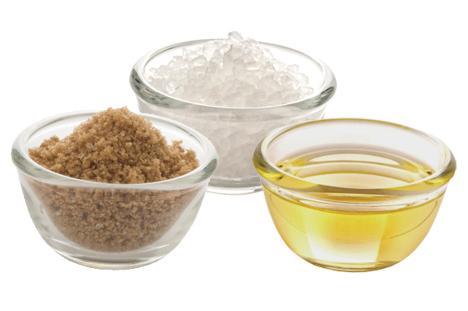Quick summary of most popular nutrition myths - Part 1

There are so many nutrition myths out there that it's hard to make a start. In this article, we are going to briefly cover most of those that don't seem to want to die, even with a great deal of scientific evidence that debunks them.
'"Eating sugar is bad for you"
Generalizing about sugar and insulin seems to get more popular by the year. In fact, many people mistakenly believe that the popular glycemic index rank foods by how dangerous they are. Insulin has obtained a bad reputation, and its effects are widely misunderstood. Early evidence suggested that sugar could cause your body to be less sensitive to insulin — the hormone that helps regulate your blood sugar levels. This can be true in diabetics and in insulin-resistant people overeating sugar, but not in healthy people. The development of insulin resistance is depended on many factors; excess fat, physical inactivity, poor sleep, and genetics all play a role.
The truth is that as long as you are not in a caloric surplus, there is nothing inherently harmful about sugar.
"Eating fat (especially saturated) is bad for you"
Eating fat will make you gain fat. For many decades, the traditional way to lose weight has been the one to reduce fat intake. But as studies pile on, old wisdom sometimes must give way. Today, we know that just like eating cholesterol isn't likely to increase your cholesterol levels, eating fat isn't what makes you fat. Furthermore, it is not only not healthy, cutting all fat from your diet could be dangerous, since your body needs it to regulate many important processes in the body. The same thing with saturated fat being the main culprit of cardiovascular diseases, just another myth. At the end of the day, trans fat is the only kind of fat that has been shown to be categorically detrimental to health — a little won’t kill you, but avoid it when you can.
The truth is that If you stay in a caloric surplus, a low-fat diet won’t make you lose weight.
"Eating too much salt is bad for you"
Most myths grow from a grain of truth. Studies have associated excess salt with hypertension (high blood pressure), kidney damage, and an increased risk of cognitive decline. But salt (sodium) is an essential mineral. Levels of blood sodium are very important. It actually is a critical nutrient for every single cell in your body. The sodium-potassium pump drives an enormous amount of chemical reactions. Furthermore, it is responsible for creating action potentials in your nervous system. So, if you were able to create big raises and falls in your blood sodium, you would die. That's why the blood sodium is very tightly controlled by a number of complex physiological mechanisms. So, if you increase your sodium consumption, your kidneys will increase sodium excretion. Also, if you decrease your sodium consumption, the kidneys will decrease sodium excretion. Generally, today's sodium intake is tomorrow's output. Now, there is about 5% to 10% of the population that are salt-sensitive. The kidneys don't eliminate sodium effectively, so they do have to control their sodium intake.
The truth about salt is that if you are not salt sensitive or have kidney problems, you can enjoy your salt as there is no real evidence to show that it is detrimental to your health.
